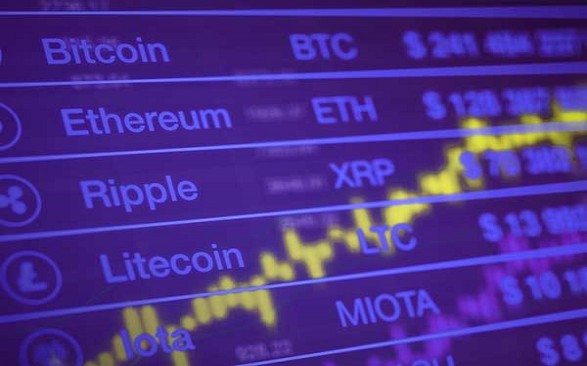by Jude Ayua
Cryptocurrency adoption and ownership are highest in Nigeria, South Africa, the Philippines, Vietnam, and India. This is according to a Consensys’ 2024 Global Survey on Crypto and Web3. The survey shows increased global awareness of cryptocurrencies and web3, finding 93 percent of people worldwide.
However, it is observed in the survey that there is a limited understanding of web3 concepts among 51 percent of those who claimed to understand it. Consensys noted this limitation presents “significant opportunities for education and engagement.”
Major findings
- Crypto Ownership and Investment: Approximately 42 percent respondents in the countries surveyed own cryptocurrencies currently or have previously bought them. Ownership is highest in Nigeria, South Africa, the Philippines, Vietnam, and India. Nigeria and Argentina show the highest motivation to own cryptocurrencies as a means to store value, likely given the instability of their local currencies. Most Nigerians, South Africans, and Filipinos associate cryptocurrencies with the future of money, compared to Brits and Germans. More respondents in Asia and Africa plan to invest in crypto assets in the next 12 months.
- Barriers to Adoption: The survey identified perceived market volatility, the prevalence of scams, lack of knowledge of where to start, and a lack of understanding about the purpose of crypto as top barriers to entering the crypto ecosystem. Despite the perception of market volatility decreasing in 2024 compared to 2023, concerns persist in countries like Japan, South Korea, and Turkey.
- Participation in Web3: Participation in almost all web3 activities including minting NFTs, owning tokens, and using wallets increased in 2024 by 6 percent, according to the survey. Additionally, respondents in Nigeria, South Africa, India and Vietnam showed most familiarity with NFTs.
- Familiarity with Decentralization: While familiarity with the concept of decentralization remains low worldwide, the US, the Philippines, India, Indonesia, Nigeria, and South Africa are very familiar with it. Notably, only Nigeria, South Africa, and Indonesia showed significant familiarity with how decentralization relates to cryptocurrencies, blockchain, and web3.
Nigeria and South Africa’s leading position in Africa
Consensys’ survey found Nigeria has the highest owners of cryptocurrencies in Africa with 73 percent of respondents, and South Africa is second with 68 percent of respondents. Nigeria’s position in this survey contrasts Triple-A’s global state of cryptocurrency ownership report in May 2024 in which South Africa topped in Africa. Also in Chainalysis’ geography of crypto report in October 2024, Nigeria was second in Africa after South Africa.
Consensys noted Nigeria and South Africa as emerging markets alongside India are rapidly embracing crypto, web3, and blockchain ahead of “select regions across Europe, North America, Japan and South Korea.” Specific data on the two countries are below.
Read also: With Proper regulations, crypto adoption will thrive in Nigeria.
- Nigeria: Majority of Nigerians are familiar with cryptocurrencies, with over 80 percent considering them environmentally friendly and associating them with the “future of money.” Most of them are aware of exchange-traded funds (ETFs). Nearly three-quarters of those aware of cryptocurrencies have purchased them, with over 40 percent currently holding crypto. More than 80 percent have at least one crypto wallet, with many owning multiple. Nigerians show a high level of understanding of Web3, NFTs, and decentralization, with a strong motivation to own cryptocurrencies at 65 percent.
- South Africa: Most South Africans understand cryptocurrencies, with over 75 percent perceiving them as environmentally friendly and nearly half associating them with the future of money. There is high awareness of ETFs, and over two-thirds of those familiar with cryptocurrencies have purchased them, though only about 20 percent currently hold crypto. More than two-thirds have a crypto wallet, with many interested in self-custody wallets. There is widespread familiarity with Web3, NFTs, and decentralization, though slightly less than in Nigeria.
Nigeria and South Africa have made notable progress in crypto regulation recently. Both countries have intensified their efforts in adopting international standards including the Financial Action Task Force (FATF) Recommendations “Travel Rule” for crypto asset transactions. The FATF placed Nigeria and South Africa on its grey list in 2023. In November 2024, South Africa’s Financial Intelligence Centre (FIC) issued a Directive mandating compliance with the FATF Recommendations and Nigeria achieved 5 upgrades in its efforts to exit the grey list and ensure compliance with the Recommendations.
Locally, both countries continue to make efforts to legitimize crypto transactions. As of June 2024, South Africa’s Financial Sector Conduct Authority issued operating licenses to a total of 138 crypto firms, while in August, Nigeria’s Securities and Exchange Commission (SEC) issued “Approvals-in-Principle” to two firms. Also, a bill to recognize virtual assets as securities in Nigeria passed second reading at the Nigerian Senate on 4 December.
With these regulatory moves, both South Africa and Nigeria are building capacities to match the growing crypto adoption and ownership rates in their countries.
Read also: Nigeria’s Investment and Securities Bill classifies virtual assets as securities.
Other relevant findings
- Data privacy: 83 percent of people worldwide expressed concern about data privacy, with only 46 percent trusting their Internet Service Providers to handle their data responsibly. While 78 percent want more control over their online identity and a share of the profits from their data, only 39 percent feel fairly compensated for their contributions online.
- AI and misinformation: Over 75 percent of people expressed worries about artificial intelligence (AI) creating fake news and fraudulent content, and 54 percent believe blockchain could help to reduce those risks. There are widespread concerns about AI’s potential for harmful content, especially in Nigeria and South Africa.
Joseph Lubin, Co-Founder of Ethereum and Founder and CEO of Consensys, observed further:
The critical role of blockchain and decentralization in enhancing privacy, trust, and transparency for how our data is managed cannot be overstated. Our latest survey not only highlights the rising importance of data privacy … but also sheds light on pervasive concerns about exploitation and misinformation, a pressing issue amid global elections and the mainstream adoption of AI.
- Web2 limitations: Globally, 80 percent of people believe web2 companies hold too much power, and over one-third think decentralizing social media platforms and international banking systems could be beneficial.
Factors driving adoption
Lubin identified the factors driving crypto and web3 adoption including social, economic, and political, emphasizing that:
2024 has been a monumental year for crypto for a variety of reasons, which are rapidly converging to move society and the right direction espoused by the web3 ecosystem, towards far greater economic, social, and political agency for all people and communities.
Lubin cited the recent US presidential election hoping it may lead to significant regulatory clarity. He also noted the industry’s readiness to “support and empower the next wave of users through education and innovation,” as the world embraces the potential of decentralization and crypto in solving the world’s complex challenges.
Read also: South Africa mandates crypto platforms to collect user data.
Final analysis
The 2024 Consensys Global Survey highlights significant growth in cryptocurrency and Web3 adoption globally, with Nigeria and South Africa leading in Africa. Both countries’ positions are driven by motivations to hedge against currency instability and embrace the future of money. Regulatory advancements in Nigeria and South Africa align with international standards to foster secure adoption. Factors like economic instability, mistrust of centralized systems, and the promise of financial inclusion are driving adoption, but barriers such as market volatility and limited understanding persist. To enhance adoption, education, favorable regulation, and broader access to decentralized systems are critical. These efforts position Africa as a key player in the global shift toward blockchain and decentralized technologies.
Read also: What is Web3? Understanding Its Ecosystem and Pros and Cons
Jude Ayua is a policy analyst at CAB. A lawyer, Jude is an associate at Infusion Lawyers where he is a member of the Blockchain & Virtual Assets Group. He is also a member of the Policy & Regulations Committee of the Stakeholders in Blockchain Technology Association of Nigeria (SiBAN). Jude reports and writes on crypto policy and regulations. jude@infusionlawyers.com
Discover more from Crypto Asset Buyer
Subscribe to get the latest posts sent to your email.





